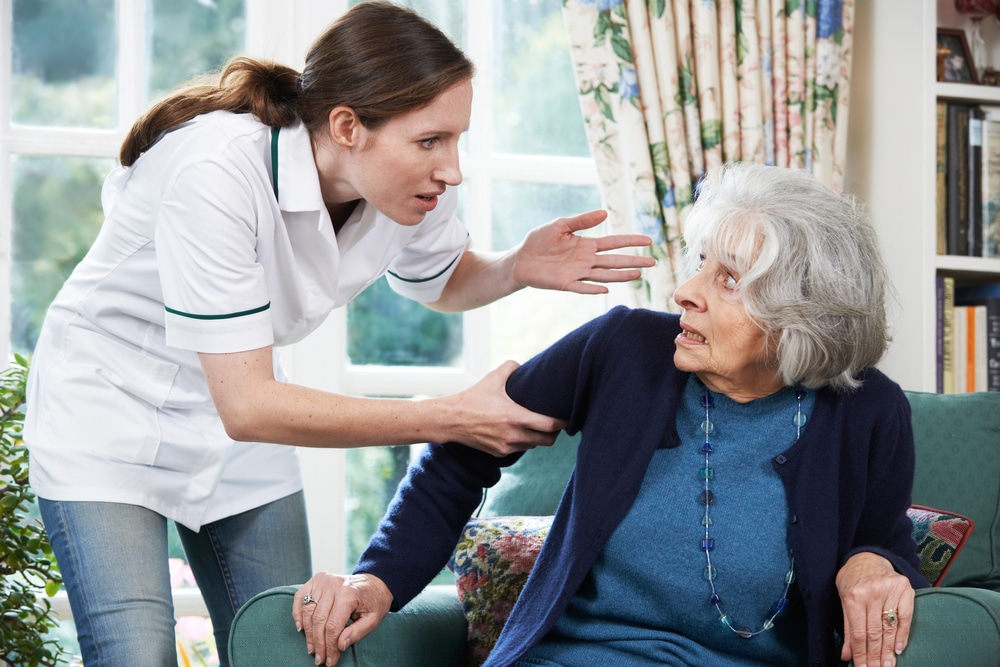Nursing Home Abuse
A standard of care must be followed to the letter when a loved one resides in a nursing facility, a long-term rehab center, or even a personal care facility. Personal care facilities, in general, are less structured with less seriously ill patients, but the standard of care remains the same for all three types of facilities.
According to the PA Department of Health, any long-term or short-term care facility is subject to the standards of care. These standards range from the vetting and number of employees to the physical plant safety inside and outside each facility. In Pennsylvania, both Federal and State guidelines must be met.
Any deviation from the guidelines can result in fines or even the closure of a facility if the standards are especially flawed. All aspects of care are scrutinized. Even the time spent with each resident and any physical plant dangers are addressed. One of the key investigative features is checking for any neglect of residents.

Signs of Nursing Home Neglect
Nursing home and long-term care facility neglect are not always very obvious. However, inspectors of facilities are trained to recognize signs that might be subtle.
Some of the signs include:
- Withdrawal by residents. This can indicate isolation by staff and inattentiveness to the social needs of the residents. Enough activities and socializing with staff should occur. Crying might be present during family visits, or a resident may seem reluctant to speak.
- Weight loss. Residents that are losing weight are either in medical need or not being monitored by staff to ensure that they are eating. Since many residents can suffer from memory loss, eating when necessary might not be instinctive anymore.
- Bed sores that go unattended. This can lead to serious infections and illnesses.
- Broken bones or bruising of any type. Of course, this is serious and should be reported immediately to the authorities. The PA Department of Aging has an 800 number to call to report what is called a RON (Report of Need), which applies to nursing facilities, long-term care, and personal care homes. (2)
- Hygiene problems in residents. This can seem to relatives to be the duty of the resident, but it is not. Residents are in facilities because they cannot care for themselves alone, and therefore the “duty of care” includes staff that will bathe and attends to the hygiene of the residents.
- Dirty facilities or linens. Residents have a right to live in a clean environment, especially the elderly, who are more prone to the risk of infections and diseases from dirt and grime.
Constant Slips and Falls Need Investigation
When an elderly person falls regularly, facilities should be checked out thoroughly by family members of the person who has Power of Attorney. While some falls occur naturally because of poor balance, dirty floors, wet floors, and understaffing are frequently the cause also.
Any slip or fall should lead to an evaluation by a hospital or physician, and not seeking this by a facility is also a significant breach of the duty of care requirements.
Head injuries occur too often during slips and fall accidents and can lead to catastrophic brain injuries or spinal injuries. Many head injuries and spinal injuries are not immediately apparent, and patients will need ongoing monitoring.
Wrongful Death Issues in Care Facilities
Needless to say, the sudden death of a facility resident should always be investigated, even when existing medical issues are present. In addition, any patient that is in distress or has suffered a slip and fall and then dies might be determined as a Wrongful Death action lawsuit against the facility.
An attorney should be called immediately as a timeline and record of all circumstances leading up to the death must be initiated. Whether suffering from neglect or neglect that ends in death, Christian J. Hoey, Esq., of Paoli, PA, and his team are seasoned in nursing home neglect and wrongful death, as well as catastrophic brain and spinal cord injuries.
Summary of Nursing Home Neglect
Those individuals in long-term care facilities, personal care homes, or even shorter-term stay facilities are genuinely at the mercy of those that care for them. Therefore, the families or primary individuals responsible for their well-being must be on the watch for any signs of neglect or abuse.
When something seems awry, a call to the Area of Aging in the local PA county or in the state of PA will start the process by documenting the complaint. However, an attorney like Christian J. Hoey, Esq. should also be called immediately to ensure that all steps and all procedures are in place.
A determination can also be made whether a lawsuit should be initiated, and all first-time consultations with Attorney Hoey are free. Having a loved one in a facility is painful for the resident and the family. Christian J. Hoey cares and is there when needed with compassion and dedication.
For more information on all our legal services, visit us at HoeyLegal.com or call us at (610) 647-5151.
